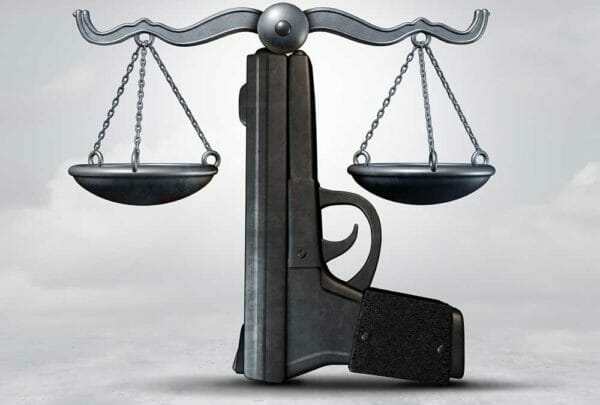
USA – -(Ammoland.com)- When news broke earlier this week that families of nine victims in the 2012 Sandy Hook Elementary School tragedy had reached a $73 million settlement in their lawsuit against “Remington”, there was a huge factual error in the report headlines, according to firearms industry insiders.
Remington Outdoor Company (ROC) no longer exists as a business entity.
The settlement was reached with the insurance companies that held policies with the now-defunct company, which essentially dissolved when various components of ROC were sold at auction in September 2020.
That fact seems to be buried in the news reports, creating confusion within the firearms community, and the overall reading audience.
Linked here at AmmoLand News is the official statement on the settlement from the National Shooting Sports Foundation, which calls into question the published reports about the settlement from several major news organizations, including the New York Times, Associated Press, and USA Today.
Well into its coverage, the New York Times acknowledged, “The financial settlement is being paid by insurance companies that had represented Remington, which is in bankruptcy.”
USA Today noted, “Four insurers for Remington, which has filed for bankruptcy twice in two years, have agreed to pay the $73 million.”
And the Associated Press explained, “Remington, one of the nation’s oldest gun makers founded in 1816, filed for bankruptcy for a second time in 2020 and its assets were later sold off to several companies.”
NPR’s report may even create the impression Remington Outdoors still thrives: “Remington’s four insurers have all agreed to pay $73 million total as the result of the suit, which questioned how Remington marketed the model of AR-15-style rifle used in the 2012 mass shooting in Newtown, Conn.”
Coverage of the agreement isn’t all wrong….
As reported accurately by the Associated Press, “The families and a survivor of the shooting sued Remington in 2015, saying the company should have never sold such a dangerous weapon to the public. They said their focus was on preventing future mass shootings by forcing gun companies to be more responsible with their products and how they market them.”
The NY Times report accurately noted “The families argued that Remington, the gunmaker, promoted sales of the weapon that appealed to troubled men like the killer who stormed into Sandy Hook Elementary School in Newtown, Conn., on Dec. 14, 2012, killing 20 first-graders and six adults. The lawsuit was filed by relatives of five of the children and four of the adults.”
But even in that, there is a factual misconception, many in the firearms community have argued in the years since the lawsuit was filed.
For the record, Killer Adam Lanza didn’t personally buy the gun he used at the school to kill 26 children and adults that day. The investigation determined that Lanza’s mother had legally purchased the guns, and that she had been murdered by her son hours before the attack.
This point seems to get lost, but a story from 2017 in the News Times, based in Danbury, Conn., observed;
“But one victim was left out of that healing process, because she was the mother of the Sandy Hook shooter. She was the one who introduced her son to firearms. She was the one who failed to get him treatment during his spiraling mental health crisis.”
“As a result,” wrote reporter Bob Ryser, “Nancy Lanza is not remembered as the single mother of a son with special needs. She is not remembered for suffering domestic violence at his hands. Her name is not mentioned along with those of the innocents 20-year-old Adam Lanza murdered at the school…even though she was his first victim.”
Adam used her guns, so allegations that the company’s advertising “targeted younger, at-risk males in advertising and product placement in violent video games” as alleged in the civil case filed in Connecticut (Soto v. Bushmaster), and accurately described by the AP, seem at least questionable at this point since it was a middle-aged woman who made the actual purchase of the Bushmaster XM15-E2S rifle.
As noted in the NSSF statement, “[T]he plaintiffs allege that the defendants’ wrongful advertising magnified the lethality of the Sandy Hook massacre by inspiring Lanza or causing him to select a more efficiently deadly weapon for his attack. Proving such a causal link at trial may prove to be a Herculean task.”
(Whether this was essentially a “straw purchase” by the late Nancy Lanza on behalf of her son no longer matters since both are deceased. Lanza took his own life with a pistol as police officers began arriving at the school.)
Under the settlement agreement, according to USA Today, “Remington also agreed to allow the families to release documents they obtained during the lawsuit, including ones that show how the gunmaker marketed the weapon, said Joshua Koskoff, the lead attorney representing the families.”
Here, again, critics of the reporting—including Jim Shepherd, veteran editor at The Shooting Wire and a career journalist—say “Remington” didn’t agree to anything, since ROC no longer exists. The insurance companies agreed, and they are not part of the firearms industry.
“No one admitted any guilt, and the firearms industry had no part in the settlement,” Shepherd observed.
Published reports also created another misconception, that this settlement somehow jeopardizes the Protection of Lawful Commerce in Arms Act.
Said the New York Times;
“The agreement is a significant setback to the firearms industry because the lawsuit worked around the federal law protecting gun companies from litigation by arguing that the manufacturer’s marketing of the weapon had violated Connecticut consumer law.”
Well, no, says the NSSF. The firearms industry umbrella group says “this settlement orchestrated by insurance companies has no impact on the strength and efficacy of the (PLCAA), which remains the law of the land. PLCAA will continue to block baseless lawsuits that attempt to blame lawful industry companies for the criminal acts of third parties.”
One of the leading critics of the PLCAA is Joe Biden, who has repeatedly acknowledged repeal of the Act is on his wish list of accomplishments while he remains president. Earlier this month, Biden told reporters the firearms industry is “the only industry in America that is exempted from being able to be sued by the public. Only one… They’ve got to be held responsible for the things that they do that are irresponsible.”
Biden issued a statement following the settlement announcement, and it was quoted by the NY Times.
“While this settlement does not erase the pain of that tragic day, it does begin the necessary work of holding gun manufacturers accountable for manufacturing weapons of war and irresponsibly marketing these firearms,” Biden said
In this regard, Biden has a serious credibility problem, as noted in reaction by the Citizens Committee for the Right to Keep and Bear Arms. The grassroots gun rights organization said gun makers actually can be sued. Companies are liable for such things as negligence, or for injuries resulting from product defects “and Biden knows it,” CCRKBA said.
“Joe Biden needs to be held responsible for the irresponsible things he says, as well,” said CCRKBA Chairman Alan Gottlieb. “Throughout his entire career, Biden has become infamous for his canards and gaffes, especially when it comes to guns. He has absolutely no credibility within the firearms community except when he admits he wants to ban guns.”
While the settlement may seem like a precedent, it probably is not. As the NSSF statement clarifies, the PLCAA remains intact. What has taken another hit is… media credibility.
RELATED:
Sandy Hook Plaintiffs in Lawsuit v. Remington ‘Considering’ Settlement Offer
About Dave Workman
Dave Workman is a senior editor at TheGunMag.com and Liberty Park Press, author of multiple books on the Right to Keep & Bear Arms, and formerly an NRA-certified firearms instructor.

